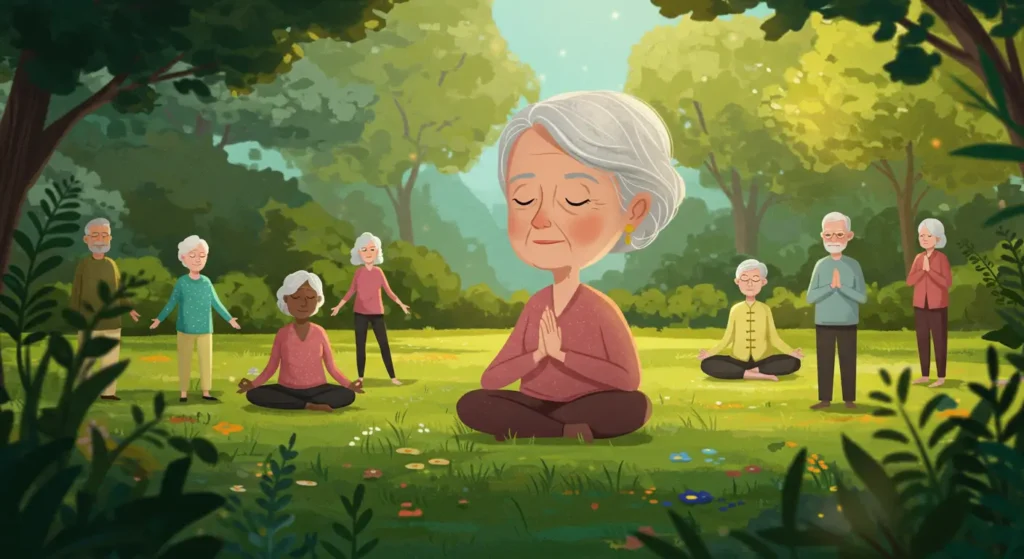As we get older, both our bodies and minds change. Sometimes, this can make us feel more worried or stressed. Older adults may feel anxious for many reasons-like health problems, losing close friends or family, or significant changes like retirement. It’s really important to address these feelings, not just for peace of mind but also for good health.

In this guide, we’ll share easy tips to help seniors manage anxiety and enjoy a calmer, happier retirement.
Recognizing Symptoms of Anxiety
The first step in managing anxiety in seniors is learning to recognize its signs. Some people exhibit anxiety through common behaviors, like excessive worrying or restlessness.
Others may display it through physical symptoms, such as difficulties sleeping, irritability, or persistent fatigue. Recognizing these signs helps caregivers and family members provide support sooner, making it easier to address the anxiety. Here are some common signs to look out for:
- Increased tension or headaches
- Difficulty concentrating
- Social withdrawal
- Changes in eating habits
- Neglecting personal hygiene
Understanding Causes of Anxiety in Seniors
Anxiety in older adults can come from many different causes. Long-term health problems, loss of loved ones, and big life changes can all lead to more worry.
About 10-20% of older adults have anxiety disorders. Knowing these causes is important for helping seniors feel less anxious. It also allows caregivers to give the right kind of support for each person.
Health Issues and Emotional Stress
Many seniors must manage long-term health problems, which can intensify feelings of anxiety. Whether it’s diabetes or heart disease, these conditions can feel emotionally heavy.
Finding ways to care for both the body and mind can help reduce anxiety. One good approach is collaborative care, where doctors and other health professionals work together to support overall health.
Calming Techniques and Supportive Care
There are many ways to help seniors lower anxiety. Mindfulness techniques like meditation or deep breathing can help calm anxious feelings quickly.
Doing regular exercise, even a short walk, can also boost mood. Plus, having a daily routine gives seniors a sense of predictability, which can be very comforting. Finding anxiety relief for seniors means trying different methods to see what works best.
Emphasizing Personalized Approaches
No single approach works for everyone when it comes to managing anxiety. It’s important to tailor strategies to fit each person’s preferences and needs.
Whether through traditional therapies or alternative practices, finding what works best for each senior can improve their results. Involving family members in these conversations helps build stronger connections.
This support can make seniors feel less alone and more understood. Together, a personalized plan and family involvement can lead to better emotional health.
Supporting Seniors with Care
Helping seniors with anxiety is important for their emotional health. By noticing the signs, learning what causes anxiety, and using calming methods and good support, we can help older adults handle their feelings better. Talk with your loved ones today and try different ways to reduce their anxiety. Together, we can make life calmer and happier for our seniors.
Is this article helpful? Keep reading our blog for more.






